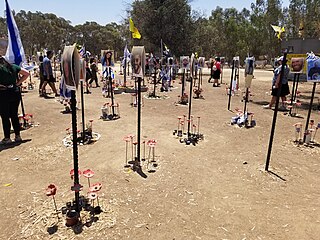Share
Human Rights Voices
While the UN devotes its human rights operations to the demonization of the democratic state of Israel above all others and condemns the United States more often than the vast majority of non-democracies around the world, the voices of real victims around the world must be heard.
Palestinian Authority/Gaza, July 24, 2024
In first, male October 7 survivor recounts rape at hands of Hamas terrorists
Original source
A survivor of the Hamas massacre at the Supernova music festival on October 7 said he was raped by terrorists attacking the rave, the first time a male victim has come forward to publicly detail sexual offenses during the brutal assault.
The testimony by the victim, whose comments to Channel 12 news were aired without revealing his identity, add to a growing body of evidence that terrorists who stormed into Israel on October 7 sexually assaulted their victims, both male and female.
Firsthand testimony of such acts has been fairly rare, as most of the victims were killed, a fact that some Israel critics have used to sow doubts about the allegations.
The victim was with hundreds others fleeing terrorists who descended upon the festival near Kibbutz Re’im early on October 7, when he said he was caught by forces from Hamas’s elite Nukhba unit.
“They pin you to the ground, you try to resist, they take off your clothes, laugh at you, humiliate you, spit at you,” he said, his face blurred and his voice distorted to avoid recognition. “They touched [private] parts, they rape you.”
“There is a circle, [people] laugh, and you don’t know what to do in the moment, whether you should resist or let it pass, how to deal with the situation. There was a very difficult rape. At some point more people arrived and called for them and so they had to stop,” added the man, who was identified by the Hebrew initial Dalet.
“It’s a very tough moment. Weakness in the entire body. As if your blood is cheap. They were wildly intoxicated, celebrating, laughing with their pistols, with their knives. You disassociate yourself from the situation, but on the other hand experience it very strongly. Very difficult,” he said.
Dalet eventually managed to escape, the report said, with the help of Israeli forces that showed up.
Asked how he has been coping with the experience, Dalet replied, “It wasn’t simple in the beginning. I was very closed off.” He also reported an obsessive fixation on cleanliness in the aftermath of the attack. “A lot, a lot of showers, to get all that energy off me, everything that happened.”
Dalet’s testimony has been handed to a police unit investigating sexual crimes committed by the terrorists on October 7, after he filed a complaint, the report said.
Aware that some are casting doubt on testimony of sexual violence on October 7, Dalet has presented various sources with medical opinions that testify to the harm done to him, as well as sitting for a polygraph test.
His testimony is also included in a major lawsuit filed by more than 100 survivors of the Supernova festival against the State of Israel, demanding more than NIS 500 million ($137 million) in government support.
“Many of them aren’t able to return to work, and aren’t able to return to their lives— to address [the case of] Dalet specifically, of course it’s impossible, at this stage, to return to normal life after what happened,” said Einat Ginzburg, one of the lawyers representing the massacre survivors.
Israeli police have been collecting survivor testimony, physical evidence, and confessions of sexual assault by terrorists on October 7 since the immediate aftermath of the attack, when thousands of terrorists burst into southern Israel from the Gaza Strip, killing some 1,200 people and taking 251 hostages, starting the ongoing war.
A February report by the United Nations Secretary-General on Sexual Violence in Conflict found that “there are reasonable grounds to believe that conflict-related sexual violence occurred during the 7 October attacks in multiple locations across the Gaza periphery, including rape and gang rape, in at least three locations.”
The report also testified to “clear and convincing” evidence that hostages were raped while being held in Gaza, and that those currently held captive are still facing such abuse.
Further evidence was made public in April by the release of a one-hour documentary on the topic directed by former Meta CEO Sheryl Sandberg, called “Screams Before Silence,” which is free to watch online.
Amit Soussana, an Israeli hostage who was released during a weeklong truce in November, was the first to speak publicly about being sexually abused in captivity, recounting being marched at gunpoint to the bedroom of her captor, where he forced her to “commit a sexual act on him.”
Teenager Agam Goldstein-Almog, also released in the November deal, reported having been groped by captors and being constantly afraid she would be raped. “Half of the girls and young women I met in captivity told me they experienced sexual or physical abuse or both. They are still living there with their rapists,” she said at the time.

